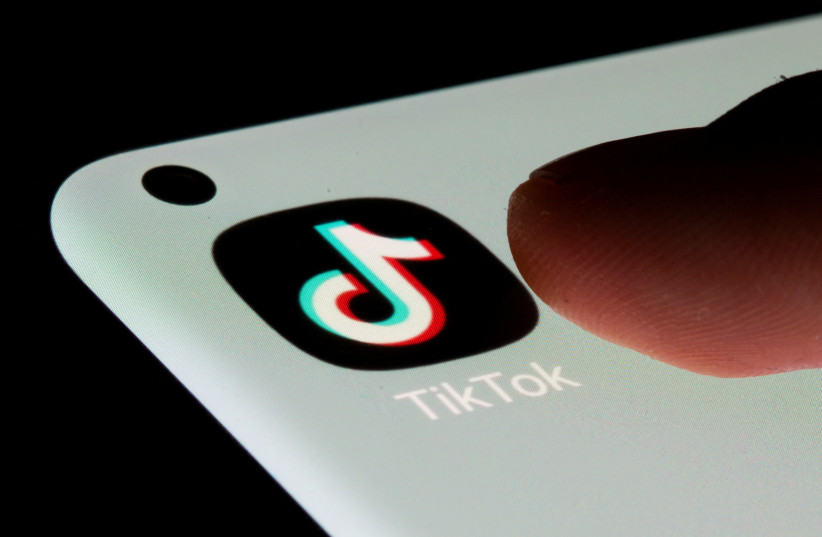Wildly popular social media platform TikTok recently added a feature that they claimed enables users to see why they are being shown the content that appears automatically on their feed.
The announcement, which was posted to the TikTok Newsroom website, explains: “Our system recommends content by ranking videos based on a combination of factors based on your activity on our app, which includes adjusting for things you indicate you're not interested in. Our goal is to serve a range of relevant and entertaining content.”
The post goes on to explain how to use the new tool.
The algorithm decides what you see
According to TikTok, multiple factors contribute to deciding which videos show up on a person's tailored feed, including the content they regularly watch, like, share, post, search and follow.
“This feature is one of many ways we're working to bring meaningful transparency to the people who use our platform, and builds on a number of steps we've taken towards that goal… Looking ahead, we'll continue to expand this feature to bring more granularity and transparency to content recommendations.”
While TikTok claims to be interested in increasing transparency with its users, critics of the social media platform are skeptical about TikTok’s intentions regarding the type of content they expose its users to.

TikTok, which is owned by the Chinese company ByteDance, has even been accused of being intentionally used by the Chinese to ideologically attack America and the West on a generational level.
In an interview with 60 minutes, American technology ethicist Tristan Harris says, “in [the Chinese] version of TikTok, if you're under 14 years old, they show you science experiments you can do at home, museum exhibits, patriotism videos and educational videos. And, they also limit it to only 40 minutes per day.
"Now, they don't ship that version of TikTok to the rest of the world. So, it's almost like they recognize that technology is influencing kids’ development, and they make their domestic version a ‘spinach version’ of TikTok while they ship the ‘opium version’ to the rest of the world.”
Harris is not alone in seeing the kind of content that TikTok shows its users as having pernicious implications. FBI director Christopher Wray described an “important threat... [coming] from the Chinese government and the Chinese Communist party” during a November House Homeland Security Committee hearing on worldwide threats. The comment was made in response to a question from Tennessee congressional representative Diana Harshbarger regarding possible national security threats that TikTok may pose.
Wray claimed that China’s “laws are used as an aggressive weapon against… both US… and Chinese companies. Under Chinese law, Chinese companies (such as ByteDance) are required to… basically do whatever the Chinese government wants them to in terms of sharing information or serving as a tool of the Chinese government. So, that's plenty of reason by itself to be extremely concerned.”
In an article published earlier this month, The New York Times writes that in spite of “decades of trying, no Chinese company has ever conquered American society like TikTok... In just the last six months, TikTok and ByteDance have been accused of lying about the access of China-based employees to American user data, using a news app to push pro-Beijing content abroad and allowing Chinese state media accounts to run unchecked and unlabeled as they criticized the American political process.”
There has previously been talk of banning TikTok in the US, notably by former president Donald Trump. Thus far, however, numerous factors including the enormous popularity of the social media platform have barred such a solution from being seriously considered. However, recently, the idea has been rejuvenated. Even people on the Democratic side of the political aisle, such as senator Mark Warner of Virginia, are beginning to voice support for the idea.
However, while no progress has been made when it comes to banning the video-sharing app on public devices, US officials will soon be banned from downloading it onto their official devices.
According to a report from Reuters earlier this week, TikTok is set to be banned on US House of Representatives-managed devices, according to the House's administration arm, mimicking a law soon to go into effect banning the app from US government devices.
The app is considered "high risk due to a number of security issues," the House's Chief Administrative Officer (CAO) said in a message sent to all lawmakers and staff on Tuesday, and must be deleted from all devices managed by the House.
Regardless of where people stand on the debate around banning the social media platform, more efforts by TikTok to increase transparency regarding why certain content appears on its users’ "For You" feeds will likely always be welcome. However, so long as the platform is owned by a Chinese company, it’s likely that there will continue to be concerned about its presence in the US.
